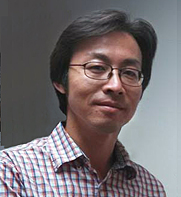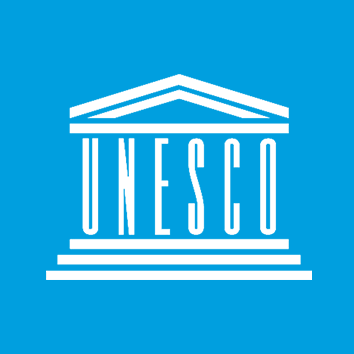A virtual side event in conjunction with the UNESCO World Conference on Culture and Arts Education 2024 in Abu Dhabi
Towards Global Knowledge, Decolonization, and Preservation –
Challenges and Opportunities Through Culture and Arts Education
The four short presentations in this side event of the UNESCO World Conference on Culture and Arts Education 2024—all rooted in the understanding that information literacy is a fundamental pillar in education—pivot around the notion of global knowledge as a foundation of culture and arts education. After opening the panel with a broader theoretical framework, the second presentation then takes Répertoire International de Littérature Musicale (RILM) as a model that underlines the importance of a global approach to information literacy. This is followed by a local perspective, taking the case of Iraqi literature and knowledge as an example. The final presentation highlights decolonization (understood here as an ongoing process) as an additional objective for the UNESCO Framework for Culture and Arts Education, taking the treatment of Uygur culture as a case in point. The panel will close with a Q&A session.
Topics
Global Knowledge and Global Literacy in Culture and Arts Education
Tina Frühauf
Brian Robison’s study, “Anything goes? Issues in the bibliographic quality control of music theses and dissertations”, has raised awareness of bibliographies often being inadequate, emphasizing the necessity for students to acquire clearer explanations and better bibliographic instruction than they have been receiving. Since this study appeared in 1993, much has changed, but not everything for the better. With Google offering seemingly a comprehensive access to all information in the virtual world and with Wikipedia being embraced as an authoritative source, awareness of curated and authoritative resources has never been more urgent. Undoubtedly, a high-quality bibliography or, at the most basic level, reference list is essential for all educators and students alike, regardless of whether they are in higher education or other programs. Tightly aligned with the UNESCO Framework for Culture and Arts Education, this paper focuses on bibliography as a methodology as well as information literacy being essential components of global knowledge to be offered and acquired within culture and arts education. Leaning on Eric C. K. Cheng’s framework of five knowledge domains, it elucidates why global knowledge is important and what it seeks to accomplish. It advocates for making bibliography a global enterprise in light of ever more diversifying student bodies. Taking a glocal perspective, it also outlines limitations in light of persisting inequities and inequalities.
A Case of Social Responsibility: Language and Communication in Global Music Education
Zdravko Blažeković
Today’s world of music scholarship is most broadly divided into five linguistic megaregions: Europe and North America with English-speaking countries elsewhere (dominated by English as language of communication), the Iberian Peninsula and Latin America (dominated by Spanish), Russia and Central Asia (dominated by Russian), East Asia (dominated by Chinese), and North Africa and the Middle East (dominated by Arabic). Each region is self-contained, maintaining its own gravitational forces. The Anglo-American scholarly networks are perceived as arbiters of global scholarly relevance, even though they often ignore current developments in other linguistic regions. This may leave scholars from outside Anglo-American networks, for example, in a disadvantaged position because their writings do not have adequate reception. This presentation proposes the mission of Répertoire International de Littérature Musicale (RILM) as a model that shows how to advance global communication in music education. Since its founding in 1966, RILM has created resources enabling those seeking information on global writings on music. RILM offers conceptually equal treatment to each country and political system, to each language or writing system in which scholarship has been published, and to each type of music that has been researched. In our post-global period of protectionism and social closure, RILM views its social and cultural responsibility to be ever more important and remains committed to building a truly global network for the dissemination of music research and education.
A Case of Cultural Responsibility: Iraq and the Preservation of Knowledge
Farah Zahra
This presentation discusses RILM’s work with music publications in Iraq, a country in one of the five linguistic megaregions, the Arab world. In April 2003, the collections of the Iraq National Library and Archive as well as those of other institutional libraries in Baghdad, which have greatly contributed to the culture and arts education of the country, experienced looting and partial destruction. Recognizing the importance of preserving a country’s music publications, in the case of Iraq, RILM has been pursuing records of scholarly and non-scholarly music publications from many repositories, including educational and cultural institutional libraries, private libraries in Iraq and the country’s diasporas, as well as public venues, even Baghdad’s flea market. Publications on music and related subjects are scholarly and educational resources and historical records with broader cultural significance and RILM offers global access to them through digital resources, thus documenting and disseminating knowledge. This paper thus provides a case in point for the twinning of preservation of knowledge and the continuation of knowledge in culture and the arts for future education.
Decolonizing Music Research and Education: The Case of Uygur Music Literature
MU Qian
In China, Uyghur music research is predominantly published in Chinese. Many Chinese-language articles on Uyghur music do not include Uyghur-language sources, and Han Chinese musicologists often fail to conceive their arguments from the research subjects’ perspective. This paper advocates for the decolonization of Uyghur music research. It understands decolonization less from the perspective of freeing from the cultural or social effects of colonization, than as a metaphor for curbing the impact of external concepts on Uyghur music and allowing Uyghur people’s own voices about their music to be heard. However, Uyghur-language music literature is often difficult to access. For example, although Uyghur-language journals and books are being published in China, none of them can be found on CNKI, China’s largest academic database. RILM Abstracts of Music Literature, which aims to include music scholarship in all languages, is advancing Uyghur music literature and making it more accessible by adding Uyghur-language abstracts to publications on Uyghur music and by creating records for Uyghur-language articles, books, dissertations, and locally produced Uyghur music recordings. RILM thus does not only play an important role in the decolonization of Uyghur music research, but in educational efforts as well.
Join the presentation
Date: 9 February 2024
Time: 10am EST (UTC-5) / 2pm GMT (UTC+0) / 3pm CET (UTC+1) / 10pm CST (UTC+8)
Duration: 1 hour
Registration link: https://gc-cuny-edu.zoom.us/webinar/register/WN_Yb4n2NiFQWSlAalV1MT-KA
Webinar link: available upon registration
Contact: rilm@rilm.org
Meet the presenters

Tina Frühauf is Executive Director of RILM and Director of the Barry S. Brook Center for Music Research and Documentation at the CUNY Graduate Center in New York City. An active scholar and writer in the field of Jewish music studies, Dr. Frühauf’s current research focuses on historiography of music scholarship and migration, examining the mass dislocation of peoples in the 20th century and the conditions of globalization, genocide, exile, and minority experience as well as musicology and coloniality. She has served on various committees of the American Musicological Society and as Council Member, and is on the board of the DAAD Alumni Association USA.
*

Zdravko Blažeković is Executive Editor of RILM, with overall responsibility for the content in RILM Abstracts of Music Literature. He has been working at RILM since his move to the United States in 1987. During his tenure, RILM Abstracts has broadened the range of publications it covers, particularly expanding the coverage of music scholarship in Asian and South American countries. He was a member of the Scholarly Editorial Board for the second edition of Die Musik in Geschichte und Gegenwart, responsible for the content concerning music in Slovenia, Croatia, Bosnia and Herzegovina, Serbia, and Macedonia. Since 1988 he is Director of the Research Center for Music Iconography at the CUNY Graduate Center.
*

Farah Zahra is Associate Editor at RILM, focusing on Arabic, French, and Persian publications. She serves as RILM’s liaison for the Institut du Monde Arabe. Her research explores community archiving practices of the Iraqi maqām tradition in wartime and postwar Iraq and in the diasporas. Her research interests include music and conflict, applied ethnomusicology, and critical archival studies. Zahra holds a MA and MPhil from the CUNY Graduate Center. Before joining CUNY, she earned an MA in Theological Studies from Harvard University where she also assisted in cataloguing the Loeb Music Library’s collection of Arab music records.
.
*

MU Qian is Editor at RILM where he works with music literature in Chinese languages. His research on music and meaning in Uyghur Sufism appeared in Central Asian survey, European journal of musicology, Ethnographies of Islam in China, and most recently in The Routledge companion to ethics and research in ethnomusicology. Dr. Mu has translated several key publications in ethnomusicology into Chinese, among them Alan P. Merriam’s book Anthropology of music. Aside from his academic work, MU is dedicated to revitalizing marginalized music through curating concerts, giving lectures, and producing CDs. Everyone listen close—Wanp-wanp jangl kap, a CD he recorded and produced of the polyphonic songs of southwestern China’s Dong/Kam people, was selected by the Transglobal World Music Chart as the Best Asia & Pacific album of the 2019–2020 season.
About RILM
Founded in 1966, Répertoire International de Littérature Musicale (RILM) is a nonprofit organization housed at the CUNY Graduate Center in New York. It documents the world’s knowledge about all musical traditions and makes it accessible to research and performance communities worldwide via digital collections and advanced tools. RILM is committed to fielding, representing, and stimulating music scholarship in all languages, and across all cultural and disciplinary boundaries in the arts, humanities, sciences, and social sciences. A UNESCO-style organization, RILM collaborates with some 40 national national committees and maintains partnerships with different organizations and institutions across the globe. RILM’s International Center is housed at The Graduate Center, City University of New York, in New York City.

